 |
 |
 |
 |
 |
 |
 |
 |
 |
 |
 |
 |
 |
 |
 |
 |
 |
 |
 |
 |
 |
 |
 |
 |
 |
|
|A. Lampman|D.C. Scott|W.W. Campbell|C.G.D. Roberts|B. Carman| |
Why do ye call the poet lonely,
Because he dreams in lonely places?
He is not desolate, but only
Sees, where ye cannot, hidden faces.
- by Archibald Lampman |
|
|
 |
| |
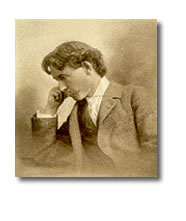 |
ARCHIBALD LAMPMAN (1861-1899) by Cameron Anstee |
| |
| Archibald Lampman is widely considered to be the finest of the of the Confederation group of poets whose early lives coincided with Canada’s emergence into nationhood, and who were committed to the development of a distinctly national literature for Canada. Lampman was born in Morpeth, Ontario, the son of an Anglican minister. He attended Trinity College in Toronto, and received a degree in Classics in 1882. During Lampman’s years at college, Charles G.D. Roberts published his landmark first collection, Orion and Other Poems (1880). |
| |
|
 |
|
|
 |
| |
DUNCAN CAMPBELL SCOTT
(1862-1947) by Sara Jamieson |
| |
| Duncan Campbell Scott was born in Ottawa to Methodist minister William Scott and his wife Janet. Lacking the financial resources to pay for the medical training that Scott wanted to pursue, his father arranged for him to be interviewed by Prime Minister John A. Macdonald, who gave him a position as a clerk in the Department of Indian Affairs. Scott’s career in the civil service would last for 52 years, culminating with his promotion to the most powerful non-elected position in his department, that of deputy superintendent general, which he held from 1913 until his retirement in 1932. |
| |
|
 |
|
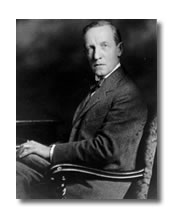 |
 |
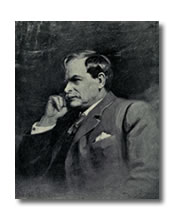 |
WILLIAM WILFRED CAMPBELL (1858-1918) by Patricia Life |
| |
| William Wilfred Campbell was a dramatist, novelist, short-story writer and critic as well as a poet. Perhaps for this reason he is not known as one of the “Confederation Poets” along with Roberts, Carman, Lampman and D. C. Scott. Unlike many Canadian writers of the time, Campbell did not go abroad and instead sought to write his poetry amidst the general indifference prevalent in his young country, and his critical writings chide Canadians for their “lack of interest” in national literature. His poetry addresses nature, society, patriotism, love and death. Some call him “the Canadian Wordsworth” because his best poems address the landscape of his own Lake District – the Great Lakes in general, but the area of the Bruce Peninsula between Georgian Bay and Lake Huron in particular. |
| |
|
 |
|
 |
| |
CHARLES G.D. ROBERTS (1860-1943) by Sara Jamieson |
|
The acknowledged leader of the Confederation Poets, Sir Charles G.D. (George Douglas) Roberts spent his childhood on a farm near Sackville, NB, where he developed an intense love of the outdoors and spent much of his time roaming amongst the surrounding woods, fields, and rivers. In 1879 he graduated from the University of New Brunswick with a degree in philosophy and political economy, but his great passion was for Greek, Latin, and English poetry. His first collection, Orion and Other Poems (1880) had a galvanizing effect on other young Canadian poets. Archibald Lampman describes how, as a student at Trinity College, he “sat up all night reading and re-reading Orion in a state of the wildest excitement.” |
|
|
 |
|
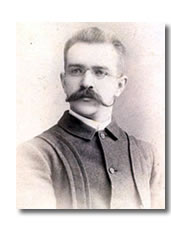 |
 |
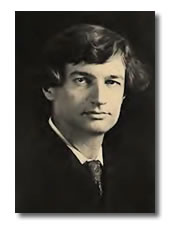 |
BLISS CARMAN (1861-1929) by Jordan Bera |
| |
"The best poetry," Bliss Carman wrote in his 1903 essay, "Subconscious Art," "addresses the mind and emotions." Heralded by his peers as the "unofficial poet laureate of Canada," Carman is, indeed, one of Canada's best and most celebrated poets. Not only is his poetry thought-provoking and pleasing to read, but it also appeals to the reader's emotions through its use of mystical, picturesque, and transcendent images of nature. |
| |
| >Click for bio, poetry and more. |
 |
|
 |
| |
 |
| |
|
|
|
| |
|
| |
 |













